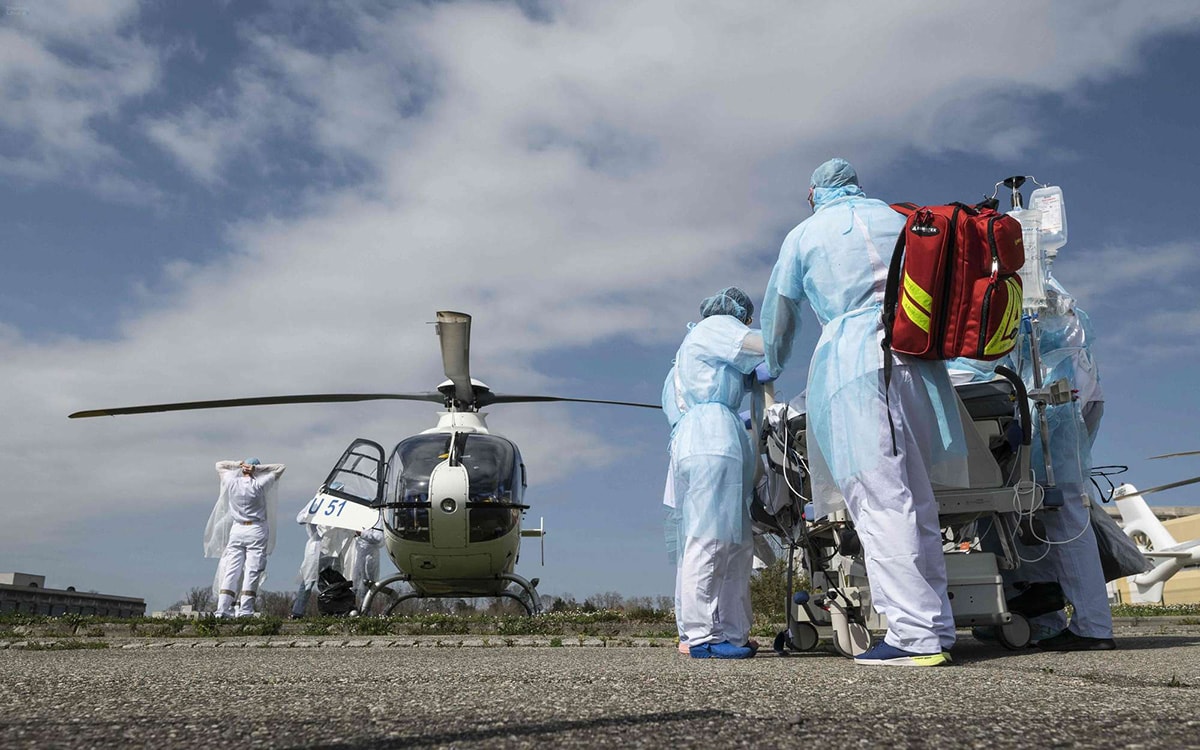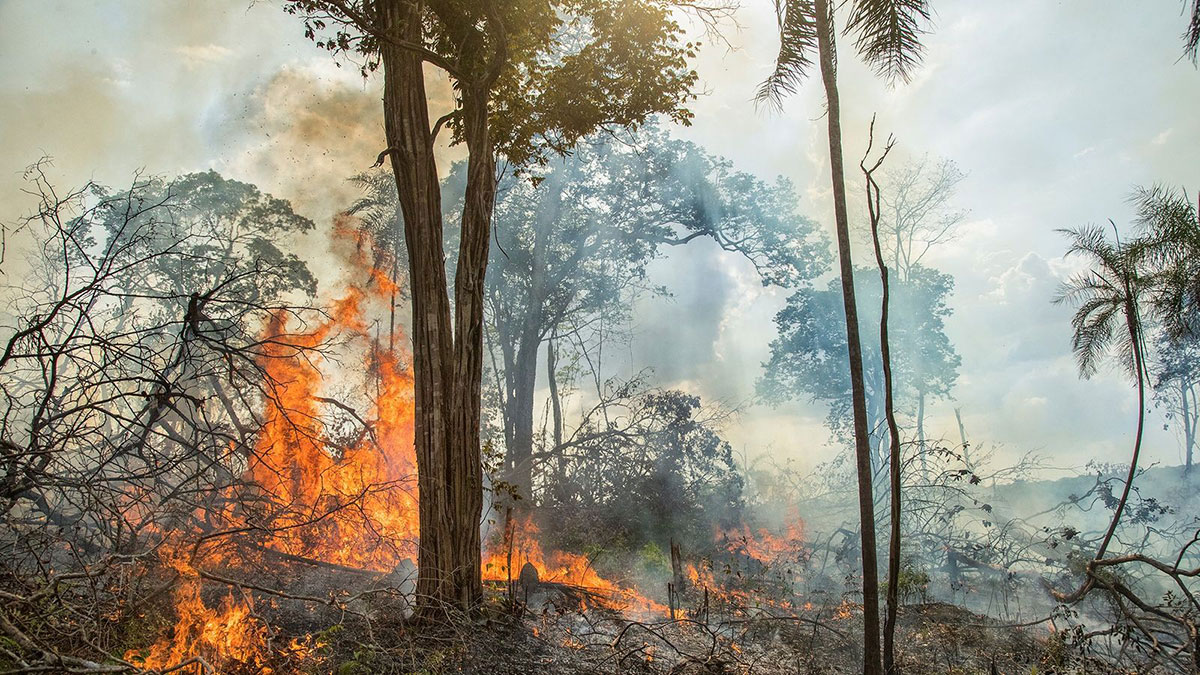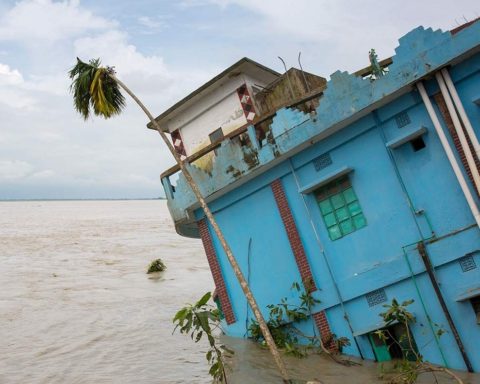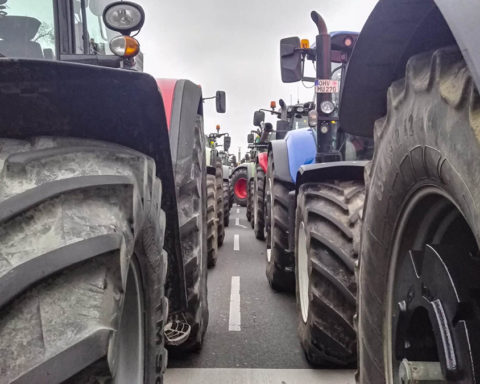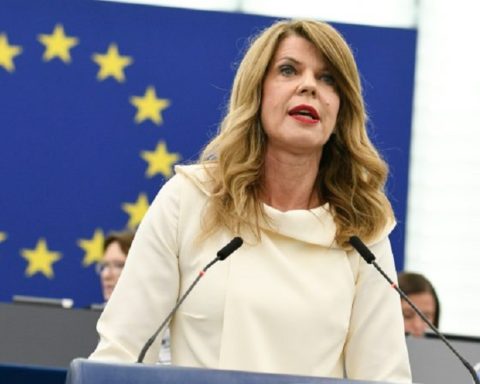After the collective shock of the coronavirus epidemic, nothing can be the same anymore. The living reality imposes itself on us. Planetary and ecological logics force us to review our ways of innovating, exchanging and investing. We must reconsider our projects. So, can this health crisis that we have just gone through change our bearings? Are we going to know how to seize the seeds of this change in order to branch out, to invent together an ecological redirection, an accounting transition, contributory business models? The health crisis is drawing our attention to the fragility of our societies, which are disengaged from the biosphere. It makes it clear that "modern progress" has made an attempt on the living; it is therefore necessary to reconnect by subjecting the economy and finance to the fragility of the biosphere, by leading new stakeholders to change their paradigm: the rebuilding of progress is a civilizational challenge.
Suspension. Such has been the experience of containment. Very concrete for those who "went to the front", the caretakers, the sick, the maintenance and distribution personnel. Almost unreal for those who have "escaped" to the countryside, those who have been laid off, or who were working remotely, or the older people reclusively in their EHPADs. We were told of a war effort "whatever it costs" by mobilizing scientific experts of all kinds, never agreeing, but unanimous on the risks to come.
And then on May 29th, the French President appointed a council of expert economists. As if the reality to be considered from now on had to be pegged to new radars. A change of cast to the maneuver. Change of power. As if our lives were a theater subject to appearance games. We end up wondering what capacity politics has today to assume a very real, unique, continuous world constrained in time and space. A world where everything is held together...
The economy is not a moment apart. Nor can it be a world apart that suddenly takes over the reins of our daily lives. The Covid-19 has enabled many to slow down, to lift their noses from their obligations, to discover their desire to live differently. Moreover, some people want to work less or no longer want to subordinate their lifestyles to their jobs. There is a movement to remove the economic hold on our lives.
Principle of non-contradiction
Actually, the suspension never really existed. That is EUR 2 billion that our economy has lost every day since the production system was stopped in France. There is not health on the one hand and the economy on the other. Even less so when the climate crisis is raging. When the threat is deaf, gestures, instruments and professions become vital, indispensable and a source of primary wealth.
With the shock of the Covid came a kind of readjustment, an awareness of what counts, far from the saving that Bruno Latour calls formatting : " It has been said that economic disciplines perform the thing they study - the expression is borrowed from linguistics to refer to all expressions that achieve what they say by the very act of saying it - promises, threats or legal action."
The reality that has come to light is that the producers of wealth are not the capitalists or the workers, but rather the living. This is exactly what the Physiocrats of the 18th century said with their leader, the physician François Quesnay, who emphasized the natural origin of production.
" It's all very well to produce, but we still have to survive! "could be the watchword when we get out of containment. " Just as we cannot continue to wage war on the virus by ignoring the multitude of relations of coexistence with them, we cannot continue to produce by ignoring the relations of subsistence that make all production possible,insists Bruno Latour. This is the lasting lesson of the pandemic."
it's all about getting out of our dormant state to sync. "Recovery involves exploring new ways of producing value," explains Fabrice Bonnifet,President of the College of Sustainable Development Directors (C3D). He believes that it is time to " hunt in a pack to put pressure on the players of good will and accelerate the changeovers". It's a matter of sincerity and resynchronization with the biosphere," he says.
For Hélène Leriche, biodiversity manager at OREE, it is an ecological reconversion that must be set in motion by mobilizing broad and vigorous coalitions.
Reconciling progress with the living
During the pandemic, we have witnessed an avalanche of platforms, proposals, appeals... All have called for us to be separated from a trajectory incompatible with our survival. Beyond the health crisis, many perceive that we must change course: maintaining the biosphere, a condition for our survival, is becoming a central collective and political objective, a structuring force field.
But how do you reconfigure it? How will the economic players succeed in scrutinizing their activities for their compatibility with climatic and ecological balances?
The projects are huge because it is a question of revisiting the modes of innovation, the relationship to performance, but also the manufacture of value, the business models...
For Jacques Huybrechts, founder of the Parliament of the Entrepreneurs of the Futureit is indeed a question of reconciling progress with the living. "The Covid crisis has shown us our fragilities that Modernity has tried to erase. "he points out. We need to engage in a "refounding of progress". This change is a "civilizational challenge," which was described in the Manifesto for Reconciling Progress and Life,conceived and published last January by TEK4life and Jacques Huybrechts. Among the signatories of this text, Cynthia Fleury, Augustin Berque, Patrick Viveret, Cécile Renouard, Dominique Sciamma, Patrick Busquet ...
It will all come down to our ability to reallocate our resources, our energies, and our creativity for "ecological redirection". This is a structuring subject for Hugo Bachellier, Training Project Manager at CEEBIOS (Centre of Expertise on Biomimicry). This implies abandoning outdated ways of doing things, equipment unsuitable for bioclimatic emergencies, outdated beliefs. During the health crisis, many people took the measure of the " bankruptcy of our system," says Hugo Bachellier. " They want to get involved in desirable futures."
Dorothy Browaeys, President of TEK4life - UP' Magazine columnist
It will be a matter of grasping the seeds of change in order to branch off. Four areas will be opened up: ecological redirection, accounting transition, contributory business models, and the rebuilding of progress, to give a good name to the civilization to come. GERMINATIONS are an original foresight opportunity to take up challenges in strategic fields such as innovation, finance, governance and CSR. Sign up and take advantage of the Early bird fare until July 7th. The troubled times we live in demand that we open up the future and turn the corner. This implies a new attention to consider all the common goods that sustain the critical zone in which we breathe, in a "...". economics of consideration ». In this economy, efficiency and responsibility are to be combined, advocates Armand Hatchuel in his post in reference to the Roman "bene gesta". In the same way, the four accounting dimensions can be deployed: taking into account (what really counts in an ecological and solidarity-based regime), being accountable for what (according to what purpose), being accountable (for what? and to whom?) and how to count. We need to change our dashboards in order to navigate towards a new horizon, that of a progress reconciled with the living.
Header photo : © C. Moirenc - CRT ("Festival des jardins de la Côte d'azur", 2019)


